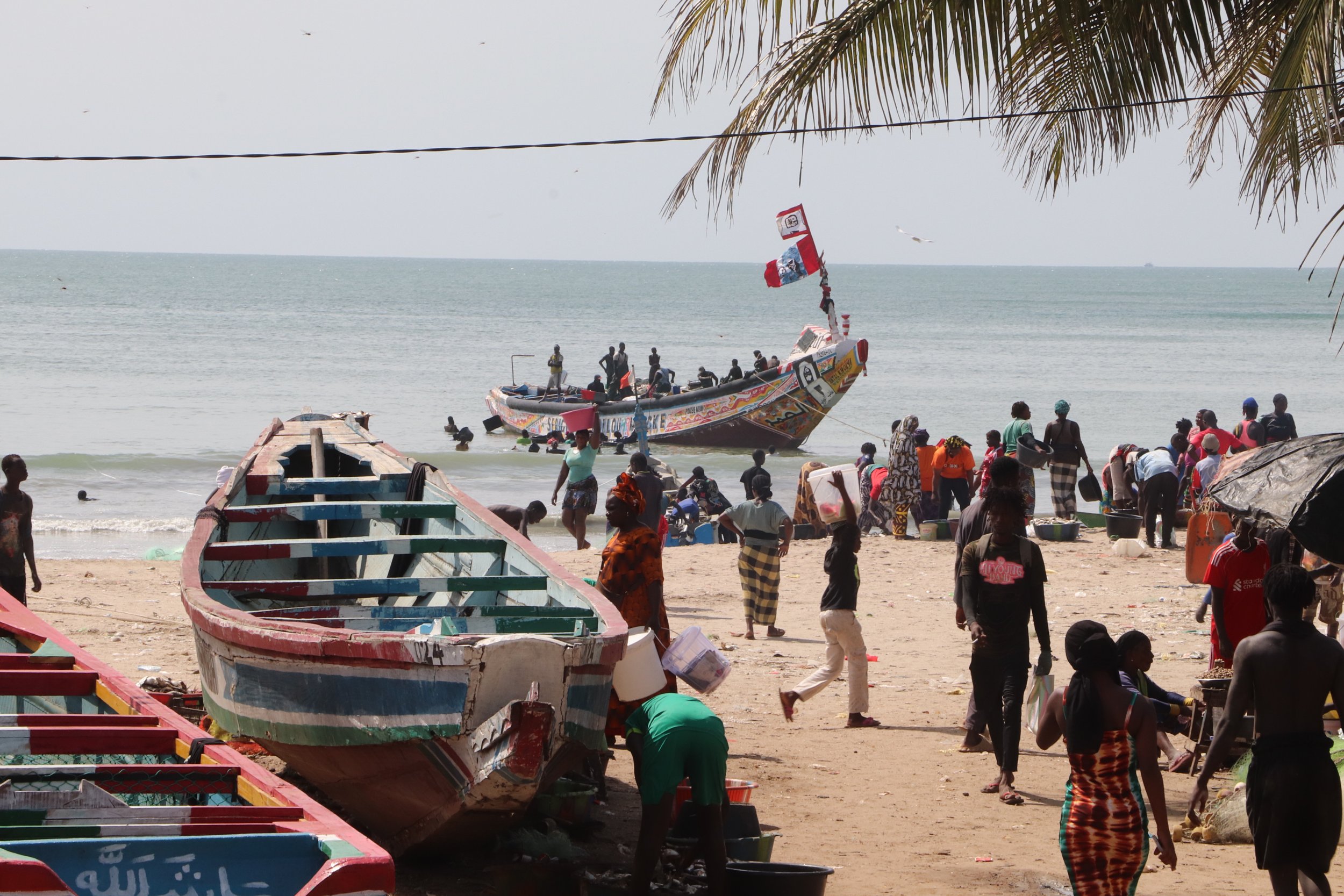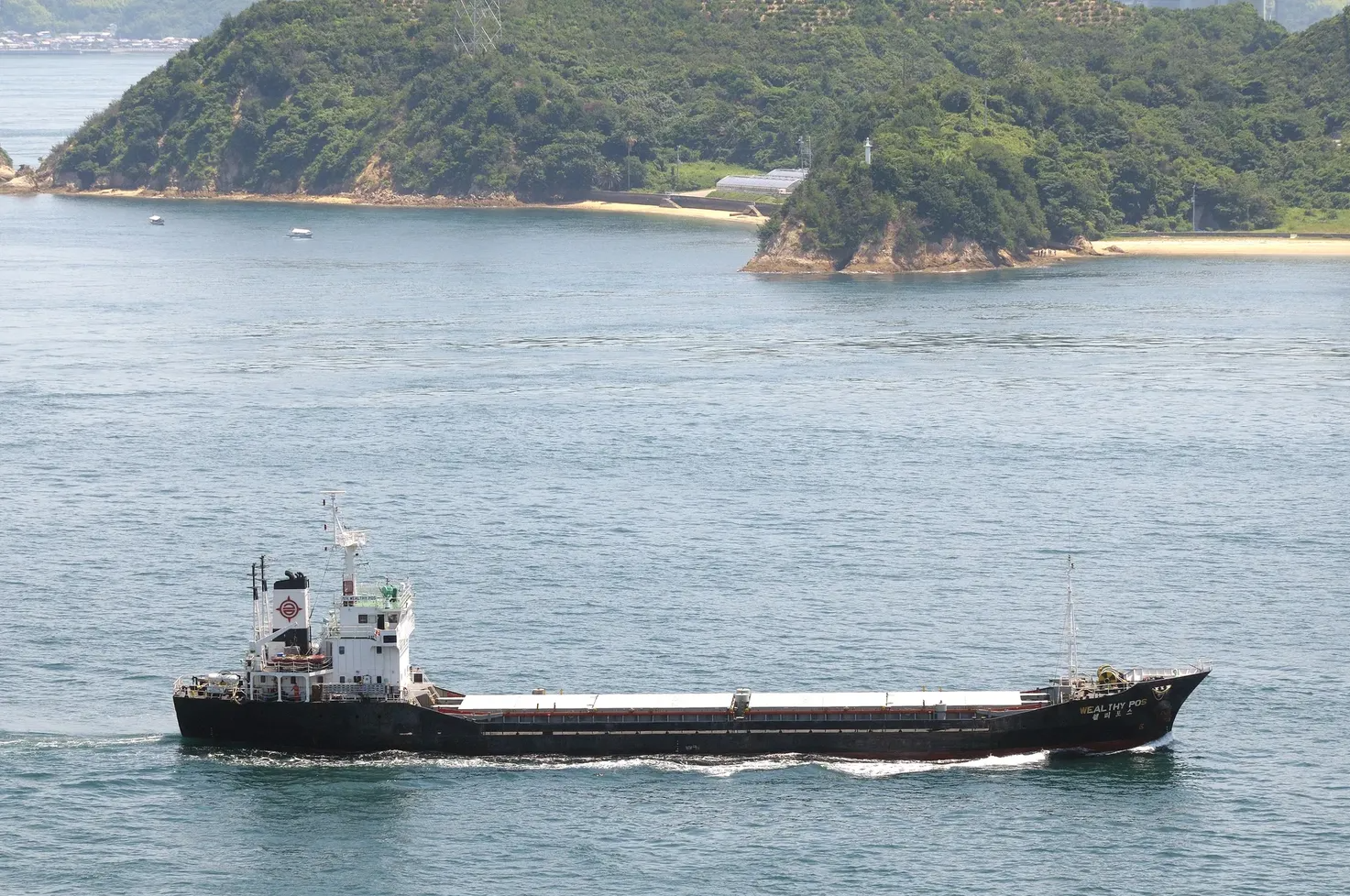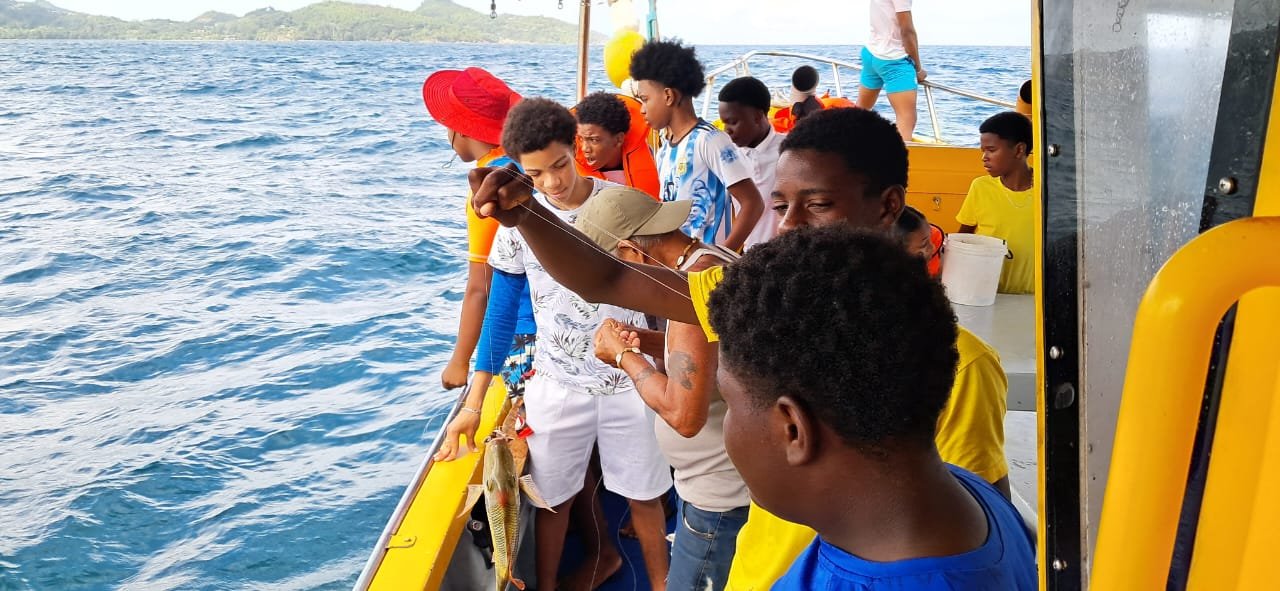Ten years after the launch of the Fisheries Transparency Initiative (FiTI), African small-scale fishers are beginning to reap the benefits of greater transparency and accountability in the management of marine resources.
For artisanal fishing communities, who are too often invisible in national statistics and overlooked in policy decisions, FiTI offers more than transparency: a lever for empowerment. “Transparency is not a luxury, it is a fundamental right”, declared Gaoussou Gueye, president of the African Confederation of Artisanal Fishing Organisations (CAOPA) during FiTI’s 10th anniversary celebration, held in Berlin on June 4th.
Over the past ten years, civil society, especially fishers organizations, have used FiTI as both a watchdog and a roadmap. And the gains are tangible.
In Mauritania, the FiTI process revealed inconsistencies in legal definitions of “artisanal”, leading to internal discussions on revising criteria like vessel size, gear type, and fishing zones. These were essential steps toward recognizing the full diversity of artisanal fisheries. In Madagascar, civil society used FiTI data to highlight illegal industrial activities within the 2 miles zone reserved for small scale fishing, campaigning for tighter enforcement of this zone. FiTI has also catalyzed regional learning, with CAOPA using it as a benchmark in Africa to push for harmonized transparency reforms and inclusive participation in decision-making.
The Seychelles stands out as a pioneer in Africa, being the first country to officially join the FiTI and to publish reports that include robust civil society participation. Speaking at the 10-year anniversary, Roy Clarisse, Principal Secretary of the Blue Economy Department, emphasized how FiTI has changed the way fisheries are managed:
“We are making transparency the norm and not the exception. Through FiTI, we have been able to engage stakeholders from all walks of life, including artisanal fishers, on the future of our fisheries”.
Indeed, Seychelles artisanal fishers helped shape the country’s FiTI report, pushing for example for disaggregated data on artisanal versus industrial fishing. This was a milestone: it brought artisanal fishers voices into national transparency standards and reforms in how fleets are classified. The FiTI process in the Seychelles also opened space for ongoing dialogue between authorities, fishers, and civil society on how best to ensure sustainability and livelihoods.
There are significant disparities between countries in their definitions of small-scale fisheries. However, a clear and inclusive definition at the national level will enable small-scale fishing communities to claim their rights. Photo: Carmen Abd Ali.
But as CAOPA rightly asks, what kind of transparency do we want? “We want a transparency that supports our participation in decision-making,” CAOPA president emphasized: “publishing laws, access agreements, and licensing data, as FiTI recommends, allows our communities not just to be informed, but to participate and protect their rights.”
Yet visibility alone isn’t enough. For FiTI to truly serve small-scale fishing communities, published information must be accessible to fishers. That means translating information into local languages; using media, like community radio, to disseminate information; producing “citizen summaries” of FiTI reports, as a way to raise wider public awareness.
Looking to the future, one of FiTI’s most strategic contributions may lie in how it helps governments to define artisanal fisheries. By requiring regular reporting on catches, employment, and access rights by fishing category, FiTI doesn’t just gather data, it shines a light on what’s missing. This includes vital information on artisanal fisheries contributions and the gaps that keep them invisible in policy making. Thanks to FiTI’s “progressivity principle”, with countries expected to improve transparency every two years, including on artisanal fisheries data, the issue of artisanal fisheries recognition stays on the table. This process opens space for dialogue, creates pressure for reforms, and gives small scale fisheries actors a foothold to push for inclusion in policies that affect their livelihoods.
And the stakes are high. A growing number of global frameworks – from the WTO’s Agreement on Fisheries Subsidies to the FAO SSF Guidelines and SDG 14.b – call for preferential treatment for artisanal fisheries. But without a clear, inclusive national definition of what is is, governments can’t say who qualifies for these preferential treatments, whether it is reserved access to rich coastal zones, support programs, or subsidies. There are also risks to this lack of clarity about how is artisanal, with larger players in the sector hijacking the “artisanal” label to unduly reap the benefits. Defining artisanal fisheries clearly and inclusively at national level will ensure small-scale fishers can claim their space, assert their rights, and be counted in national reporting on sustainability, human rights, and good ocean governance.
FiTI’s journey is far from over. But its first decade has proven that transparency is a tool for justice, one that small-scale fishers, if properly supported, can use with power and precision. As CAOPA highlighted: “The true promise of FiTI is not in the reports it produces, but in the voices it amplifies. Let’s keep going further, together.”
Banner photo: Artisanal pirogues in Joal Port, Senegal. Photo : Mamadou Aliou Diallo.








The BBNJ Agreement reshapes the governance of fisheries without imposing direct regulations: high seas MPAs could displace fishing effort into African EEZs, potentially increasing competition to access for small-scale fisheries. At the same time, the treaty legitimizes negotiated and community-based spatial management tools.